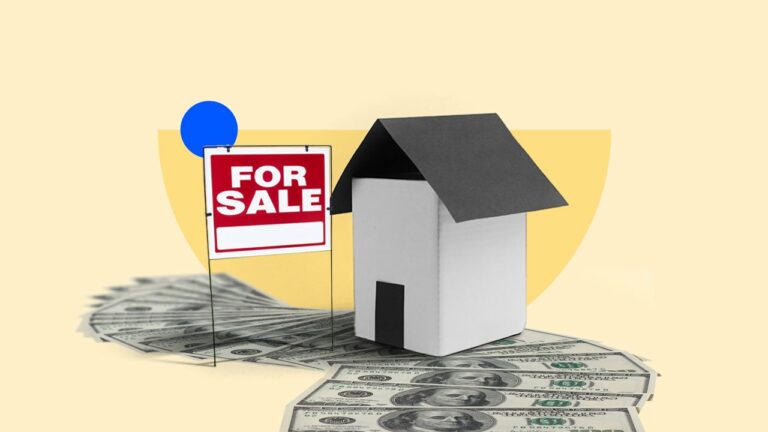In this do-it-yourself digital age, home sellers and buyers alike might wonder if they need Realtors — or, more precisely, to pay Realtor fees. Just how crucial are these agents to a successful real estate transaction?
Well, a good agent is really pretty useful. Especially if you’re buying a home: Agents have access to information you don’t, and it takes time and expertise to research properties, find the best ones for you and put together a strong offer. But sellers see many benefits, too, especially when figuring out the best asking price. Your home will still need to be staged, listed on the market and shown, too. Here, we’ll take an in-depth look at how real estate agent fees work and what you get for the money.
One important note first: Changes to the way commissions work went into effect on August 17, as a result of a long legal battle settled by the National Association of Realtors and several major brokerages. The commission system, and how it has changed, is outlined below.
The NAR lawsuit
In October 2023, a federal jury found that the National Association of Realtors (NAR), along with several large brokerages, conspired to inflate Realtors’ commissions. All of the brokerages settled out of court, and as of March 15, 2024, NAR did the same.
As a result, the longstanding traditional real estate commission model — that is, sellers footing the bill for both their own agent and their buyer’s, typically totaling 5 to 6 percent of the home’s sale price — is upended. Now, sellers’ agents may no longer make offers of compensation to buyers’ agents on the MLS (multiple listing service, a vast database of for-sale homes accessible only to industry pros). Home sellers might no longer need to pay the agent who represents their buyer, which could open the door to much more competition among buyer-side agents, and even more potential for fee negotiation.
How much are Realtor commissions?
Let’s recap the traditional commission model, before the rule changes took effect.
Only a very small portion of Realtors work on salary — working on commission is much more common. For years, the typical going rate was 6 percent, split down the middle between the buyer’s agent and seller’s agent. But it began to fluctuate with the advent of discount brokers and the rise of online, publicly accessible listings.
Of course, real estate commissions can be negotiated, and nowadays they typically run somewhere closer to 5 percent of a home’s sale price. That means the means the more expensive the home, the more money the agents make. The exact terms of an agent’s commission vary from sale to sale, and can depend on the region and which firm they work for.
Let’s look at an example. A 5 percent commission on a $250,000 home sale would come to $12,500. But on a $1M sale, a commission at the same rate would come to $50,000.
Assuming a 5 percent total commission under that model, here’s roughly what sellers could expect to pay based on the price their home sells for:
Home’s sale price
Seller’s agent commission (2.5%)
Buyer’s agent commission (2.5%)
Total commission (5%)
$250,000
$6,250
$6,250
$12,500
$500,000
$12,500
$12,500
$25,000
$750,000
$18,750
$18,750
$37,500
$1,000,000
$25,000
$25,000
$50,000
Seller vs. buyer commission
Sellers sign a listing agreement with a Realtor in which they agree to pay a commission fee after the transaction closes. If it’s an “exclusive right to sell” arrangement, they pay the fee even if they found the buyer on their own.
Commissions for both Realtors in the transaction have traditionally been paid by the home seller: Both the buying and selling agents are paid with proceeds from the sale of the home. These two agents typically split the total commission — so for a 6 percent commission, the selling agent would receive 3 percent and the buying agent would receive the other 3 percent. Now that the new rules have kicked in, that is changing.
It also changes in the case of dual agency, when one agent represents both the buyer and seller in a transaction. Laws about this vary by state; in some states, dual agency is not permitted. In this type of scenario, pay particular attention to the home appraisal to ensure you’re getting a fair price. While agents have a fiduciary duty to their clients, with dual agency, the lines can get blurred.
As Samantha Fish, an agent with Wesely & Associates in Grass Valley, California, points out, agents are still required to act in their clients’ best interest. “It’s in our ethics; it’s in our contract,” she says. “If someone comes into my open house and they like it, but they don’t have an agent, at that point I can say, ‘let me get you an agent from my office’ so they feel like they’re being represented 100 percent as well.” Still, buyers working directly with a listing agent may have more room for negotiation because the seller may agree to a lower selling price if the agent agrees to lower their fee.
The brokerage’s cut
Real estate brokerages may get a cut of the commission as well. The brokerage RE/MAX, for example, has a split commission setup by which its agents receive 95 percent of the full commission from the sale, and 5 percent goes back to the company.
“The broker has to set the policy and oversee, monitor and supervise everything the agent does,” says Patrick Duffy, broker/owner of Duffy Realty in Miami. “And if the agent does something fraudulent or unprofessional, the broker gets sued.”
What do real estate agent fees cover?
You might wonder, what services does this commission fee buy me? One of the biggest ways buyers benefit from working with a Realtor is gaining access to the MLS, the database Realtors use to see and list properties for sale.
The fee compensates the agent for time spent answering questions and helping you through the process. An agent is also able to utilize their skills and contacts to negotiate, find properties and take you on tours of multiple homes.
A Realtor’s fee covers a wide range of costs for sellers as well, including marketing materials, staging and showing the property, coordinating open houses and contacting agents of potential buyers. When an offer comes in, the listing agent negotiates on behalf of the seller, often presenting one or more counteroffers. A lot goes into listing a home, such as:
Creating a comparative market analysis to establish a competitive price
Arranging for photo shoots, sometimes including aerial shots via drone
Writing descriptive listing copy to attract interest from other Realtors and potential buyers
Providing staging guidance
Showing the property multiple times to prospective buyers
Hosting open houses, often on weekends
Providing yard signage
Making sure listings are populated on all major property search websites
Helping the seller review and negotiate buyer offers
As with most of the other expenses related to real estate transactions, a Realtor’s fee isn’t paid until the sale closes.
Average real estate commissions by state
Overall, the national average Realtor commission in 2023 was 5.49 percent, according to data from Clever. In all but a few states, the average commission ranged between 5 and 6 percent.
Keep in mind, though, that Realtors may accept a lower commission for high-priced homes to earn a higher amount overall: Their piece of the pie may be smaller, but it’s a richer slice. “For example, if I’m listing a $4 million home at 6 percent, that’s a lot of money,” Duffy says. “In a situation like that there is greater flexibility to negotiate the commission — if you get $100,000 or $80,000 instead of $120,000, it’s still a good payday.”
Here are the average real estate commissions by state, according to Clever:
State
Average commission rate
SOURCE: Clever
Alabama
5.45%
Alaska
6.00%
Arizona
5.44%
Arkansas
5.99%
California
5.11%
Colorado
5.62%
Connecticut
5.47%
Delaware
4.88%
District of Columbia
5.49%
Florida
5.37%
Georgia
5.81%
Hawaii
4.78%
Idaho
5.50%
Illinois
5.35%
Indiana
5.56%
Iowa
5.67%
Kansas
5.58%
Kentucky
6.00%
Louisiana
5.56%
Maine
5.17%
Maryland
5.34%
Massachusetts
5.45%
Michigan
5.92%
Minnesota
5.82%
Mississippi
6.07%
Missouri
5.58%
Montana
5.50%
Nebraska
5.25%
Nevada
5.80%
New Hampshire
5.25%
New Jersey
5.21%
New Mexico
5.90%
New York
5.39%
North Carolina
5.52%
North Dakota
5.00%
Ohio
5.99%
Oklahoma
5.95%
Oregon
5.03%
Pennsylvania
5.48%
Rhode Island
5.50%
South Carolina
5.62%
South Dakota
5.49%
Tennessee
5.58%
Texas
5.73%
Utah
4.90%
Vermont
5.49%
Virginia
5.45%
Washington
5.25%
West Virginia
6.67%
Wisconsin
5.15%
Wyoming
6.00%
How to avoid paying Realtor fees
Selling your home without the help of a real estate agent — called “for sale by owner” or FSBO for short — is certainly possible. Between July 2022 and June 2023, 7 percent of home sales were sold by owners without the help of an agent, according to NAR data. But selling without an agent’s help is a lot of work to do on your own, much of it complicated.
If you don’t want to go it alone, ask agents from the outset what their commission is and compare the terms of each person you talk to. If you think the fee is too high, talk to them about lowering it. If the transaction is being handled on both sides by agents from the same brokerage, you might have more leverage to negotiate as well.
Alternatively, you could consider working with a low-commission real estate agent, who will likely charge much less than a traditional agent would (usually 1 to 1.5 percent of your home’s sale price). However, since they’re receiving a smaller commission on each property, these agents are typically focused on volume. As a result, you might not receive as much personal attention as you would with a traditional Realtor.
There are also brokerages and agents who work on a flat-fee basis. In other words, no matter how much your home sells for, they’ll receive a set amount rather than a percentage of the sale price.
If you want to avoid Realtor fees and sell your house quickly, another option could be selling to an iBuyer or a company that buys houses for cash. Both options will allow you to finalize your home sale fast, without paying any agent commissions. But the offers from these buyers will be less than you’d likely fetch in a traditional sale, and some charge service fees that are equivalent to what you’d pay in commission anyway.
Finally, remember that even if you’re not paying Realtor fees, there are still plenty of other closing costs associated with selling your home. For instance, you may be on the hook for things like title transfer fees, attorney fees, property taxes and more. And even if you sell without an agent of your own, you may still be on the hook to pay your buyer’s agent.
FAQs
What percent commission do most real estate agents charge?
Typically, each agent involved in the transaction (one for the buyer, one for the seller) earns somewhere between 2.5 and 3 percent of the home’s sale price as their commission fee. However, the amount is negotiable — and new rules as of August 17, 2024, mean the seller may no longer be obligated to pay their buyer’s agent’s fee.
Do sellers or buyers pay fees to the real estate agent?
Traditionally, sellers have been the ones who covered real estate agent commissions — both for their own agent and for the buyer’s. That changed on August 17, 2024, as a result of the NAR lawsuit settlement. Now, buyers may (or may not) be responsible for paying their own agent directly. The details of each transaction will be different.
How much commission do you pay on a $500,000 home?
It depends on the specific terms of each agent’s commission. Commissions usually total somewhere between 5 and 6 percent of the home’s purchase price — on a $500,000 transaction, 5 percent comes out to $25,000 and 6 percent comes to $30,000.
This article was originally published by a www.bankrate.com . Read the Original article here. .



